Lipicard-160
Lipicard-160 belongs to a class of drugs known as ‘fibric acid derivatives’ or ‘fibrates,’ which are typically used to treat high cholesterol or fat/oil levels. Hyperlipidemia, also known as hypertriglyceridemia, is a condition in which low-density lipoproteins (LDL) or bad cholesterol levels are high but high-density lipoproteins (HDL) or good cholesterol levels are low. Increased levels of poor cholesterol increase the risk of heart attack and stroke in the future, especially in people who already have heart disease.
Lipicard-160 contains ‘fenofibrate,’ which works by enhancing the natural component in the bloodstream that breaks down fats, increasing its usage and elimination. As a result, Lipicard-160 reduces dangerous cholesterol such as LDL (bad cholesterol) and triglycerides (TG) while increasing HDL levels (good cholesterol).
Lipicard-160 is available in two forms: oral capsules and tablets. Fenofibrate capsules can be taken with or without food and should be consumed whole with a glass of water. It should not be crushed, chewed, or broken. Always follow your doctor’s instructions and take your medicine exactly as directed. Lipicard-160 should be taken after meals if possible. Nausea, chest pain, vomiting, diarrhea, sleepiness, muscle soreness, redness/swelling in the legs, and elevated liver enzymes are all possible side effects. The majority of fenofibrate’s negative effects do not require medical treatment and fade away with time. Please visit your doctor if the side effects persist or worsen.
Please inform your doctor if you are allergic to fenofibrate or any other fibric acid derivative. Before using fenofibrate, let your doctor know if you are pregnant or breastfeeding. Lipicard-160 is not suggested for children under the age of six because its safety and effectiveness have yet to be determined. If you have yellowing of the skin (jaundice), an allergic response, cramping, or weak muscles, see your doctor very once.
Lipicard-160 is used to treat high cholesterol.
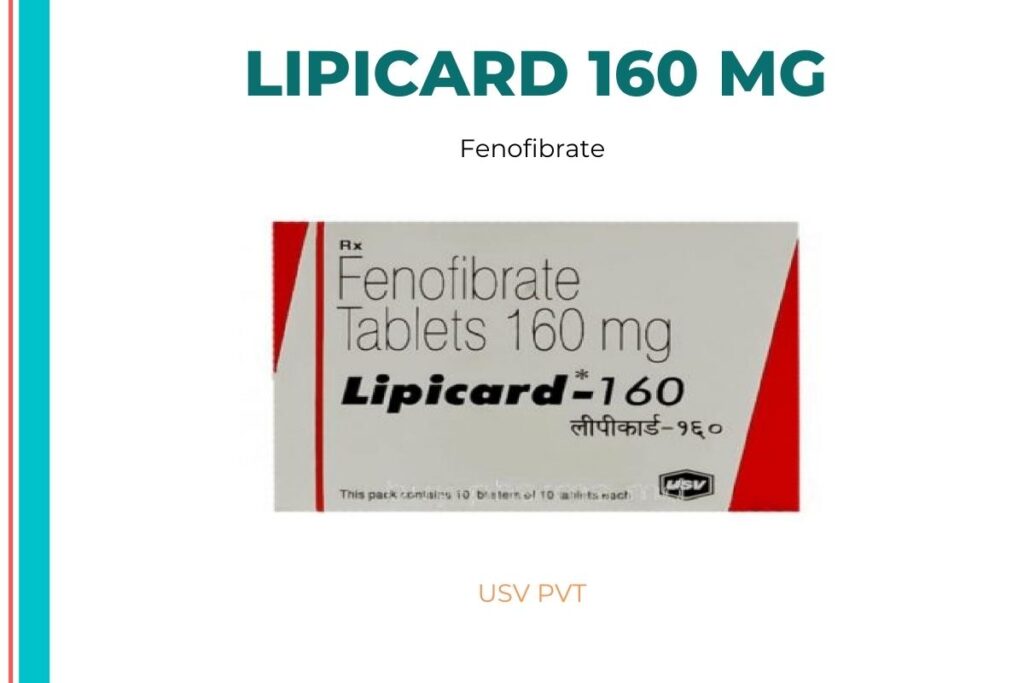
Medicinal Advantages
Lipicard-160 contains the drug ‘fenofibrate,’ which is taken in conjunction with a healthy diet to help lower ‘bad cholesterol’ (LDL, TG – triglycerides) and boost ‘good cholesterol’ (HDL) levels in the blood. Lipicard-160 is frequently used in conjunction with statins to help decrease cholesterol levels. Aside from that, Lipicard-160 aids in the treatment of high cholesterol in diabetics and high blood pressure patients.
Use Instructions
At the start of a meal or just before, swallow the tablet whole with a glass of water. It’s normally just taken once each day. It should not be chewed or crushed.
Store in a cool, dry location away from direct sunlight.
Lipicard-160 Side Effects
The majority of Lipicard-160 adverse effects do not require medical care and fade away with time. Muscle soreness, stuffy/runny nose, headache, joint pain, and elevated liver enzymes are all frequent adverse effects to report to your doctor. If the side effects don’t go away, talk to your doctor.
Precautions and Warnings in Depth
If you are allergic to any fenofibrate products or other fibric acid derivatives drugs like clofibrate or gemfibrozil, consult your doctor before taking Fenofibrate. Fenofibrate should not be taken by nursing women, and it should be discussed with a doctor before use. Patients with bladder difficulties, gallstones, liver disease, renal disease, and muscular disorders (such as muscle discomfort, myopathy, and rhabdomyolysis) should avoid taking Fenofibrate and should consult a doctor before using it. Because Fenofibrate can raise creatinine levels, it should be avoided by kidney sufferers. If you’re taking an oral anticoagulant or blood thinner (such as coumarin or warfarin), tell your doctor because it could affect your bleeding time.
Interactions Between Drugs
Interaction between drugs: Oral anticoagulants (coumarin, warfarin), anti-gout medications (colchicine), and other fibrates interact with fenofibrate (clofibrate, gemfibrozil, ezetimibe).
Avoid foods high in lipids to avoid drug-food interactions.
Fenofibrate should be used with caution in patients who have liver difficulties, gall bladder stones, bladder disease, pancreatitis (pancreas inflammation), or muscle problems (myasthenia gravis, rhabdomyolysis).
Safety Suggestions
ALCOHOL
Avoid drinking alcohol since it can damage your liver by raising liver enzymes and liver functions tests (LFT).
PREGNANCY
If you’re pregnant or planning to become pregnant, talk to your doctor about fenofibrate, which is a Category C risk drug. Only use this medicine if the potential benefit outweighs the potential harm.
BREAST FEEDING
It is not suggested that fenofibrate be used by nursing moms. Before you start breastfeeding, talk to your doctor.
DRIVING
Fenofibrate has no effect on dangerous occupations such as driving.
LIVER
Only use on the advice of a doctor when the benefit outweighs the risk.
KIDNEY
Fenofibrate should not be taken in patients with severe renal disease, particularly those who are on dialysis. However, if prescribed by a doctor, this medicine can be used by mild to moderate kidney sufferers.
No habit formation
Advice on Diet and Lifestyle
Other lifestyle modifications that may improve the effectiveness of this drug include exercising, decreasing weight if overweight, and quitting smoking.
While using this medication, it is advised to minimize or avoid alcoholic beverages.
When this drug is used with alcohol, it can cause additional side effects such as sleepiness. If you are drinking alcohol-containing beverages, do not drive or operate machinery.
Contact your health care practitioner right away if you notice slurred speech, disorientation, extreme weakness, or difficulty breathing.
Recommendations
Fenofibrate can cause cholelithiasis, so if you notice any gallstones, stop taking it.
Breast-feeding is not advised while taking this medication or for the first 5 days after quitting it. Before you start breastfeeding, talk to your doctor.
If you’re already on a blood thinner, you should keep track of your bleeding time on a regular basis.
If you’ve been on Fenofibrate for a long period, you should get a regular liver function test (LFT) and a kidney function test (KFT).
Other details: This item is non-refundable.
Concerns of Patients
Hyperlipidemia is a condition in which the concentration of cholesterol (also known as lipids/oil/fats) in your blood is abnormally high. Lipids are produced naturally in our bodies and can also be obtained through diet. These fats are broken down by the liver for later usage. Excess fat is formed on the walls of our heart’s blood vessels if lipid levels are too high, which can lead to plaque formation within the artery lining, resulting in clogged arteries. The risk of stroke and heart attack is increased when arteries get blocked.
FAQs
Oral contraceptives are safe to use with Fenofibrate because no interactions have been discovered. For more information, talk to your doctor.
If you are allergic to fibric acid derivatives or Fenofibrate, have significant renal impairment (including dialysis), active liver disease, gallbladder disease (gallstones), or are a nursing mother, you should not take Fenofibrate.
Increased liver enzymes (as measured by LFTs), rhinitis, stuffy/runny nose, nausea, indigestion, headache, and back discomfort are some of the frequent adverse effects that can occur.
In patients with type 2 diabetes, fenofibrate does not reduce the risk of cardiac issues.
Muscle difficulties (such as inexplicable muscle discomfort) and liver problems are long-term side effects of Fenofibrate (with increased liver enzymes). Please see a doctor if you have any of these symptoms.
Fenofibrate increases the chance of muscle discomfort and rhabdomyolysis, a dangerous muscle disease. If you take the medicine with statins, the danger is increased.


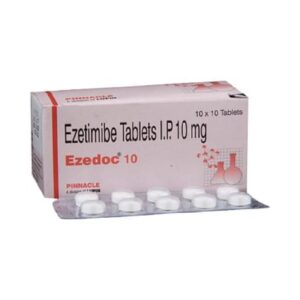
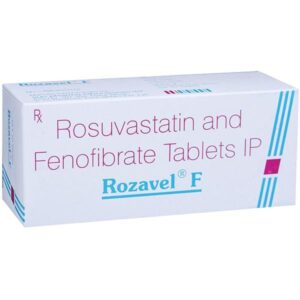
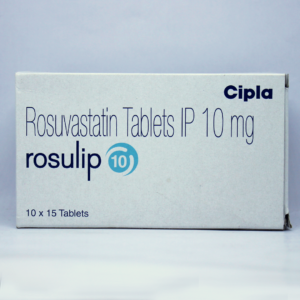
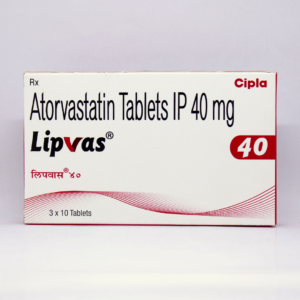
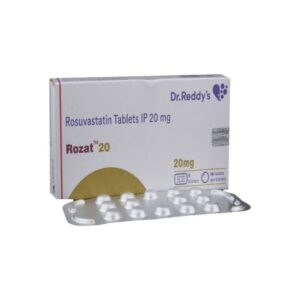

Leave a Reply
You must be logged in to post a comment.